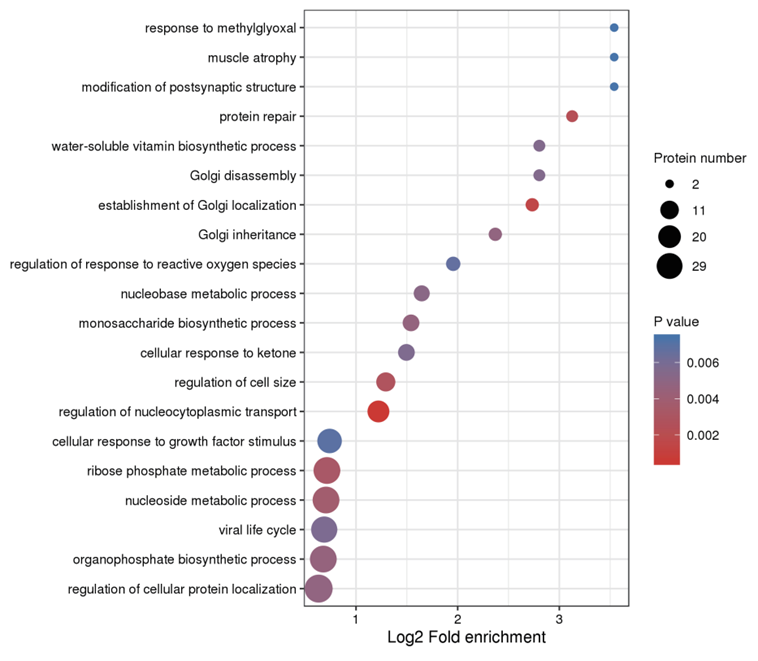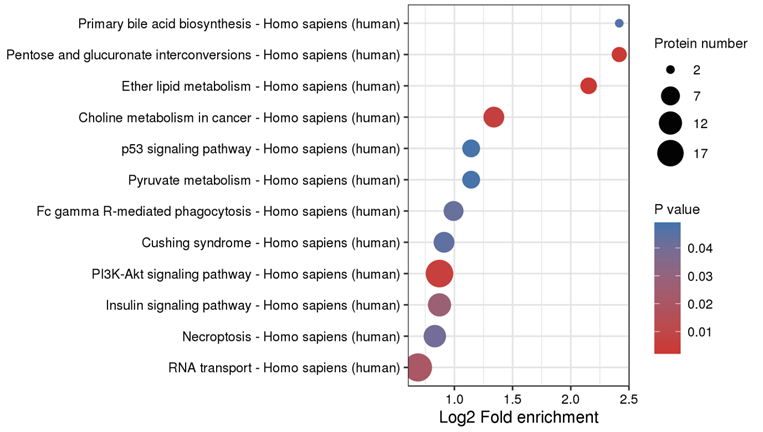Interested in our services
Contact our experts to provide further information




Differentially expressed proteins (DEPs) in each comparison groups were performed enrichment analysis of GO, KEGG pathway and protein domain, respectively (Fisher’s exact test was employed to calculate the significance P value), in order to find out whether the differentially expressed proteins have a significant enrichment trend in some functional categories. The term with p value < 0.05 is considered significant. The top 20 terms of the most significant enrichment were shown in the bubble chart. In the bubble chart, the vertical axis is the functional classification or pathway, and the horizontal axis value is the Log2 transformed of the fold enrichment of DEP compared to identified protein. The circle color indicates the enrichment significance p value, and the circle size indicates the number of differential proteins in the terms.
GO Enrichment
Gene Ontology (GO) is an important bioinformatics analysis method and tool for expressing various properties of genes and gene products. GO annotations are divided into three broad categories: Biological Process, Cellular Component, and Molecular Function, which explain the biological effects of proteins from different perspectives. Three major categories in the GO classification were performed enrichment analysis, respectively.

KEGG Pathway Enrichment
KEGG is an information network that links known intermolecular interactions, such as metabolic pathways, complexes, and biochemical reactions. The KEGG pathway mainly includes: metabolism, genetic information processing, environmental information processing, cellular processes, human diseases, drug development, and the like.

Protein Domain Enrichment
A protein domain is a component that repeats in different protein molecules, has similar sequences, structures, and functions, and is a unit of protein evolution. The length of the domain is typically between 25 and 500 amino acids in length.

Interested in our services
Contact our experts to provide further information
